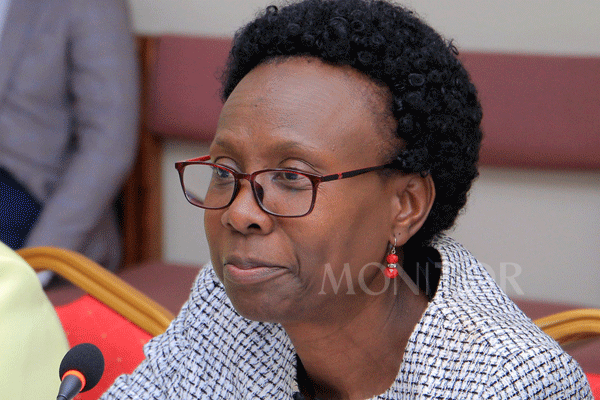Prime
What to expect as third wave of Covid-19 ends

A Covid-19 treatment centre at Soroti Regional Referral Hospital. PHOTO/GEORGE MURON
What you need to know:
- Latest statistics indicate that the positivity rate is about 1 percent.
The Health minister, Dr Jane Ruth Aceng, has said the Covid-19 third wave, which was triggered by the Omicron variant, has ended.
But some scientists say this is not yet the end of the Covid-19 pandemic, warning that another variant may emerge soon and trigger another wave.
Dr Aceng tweeted yesterday: “While the country is out of the third Covid-19 wave, registering a low positivity rate and no district in alert or response phase, I appeal to the population to continue following SOPs and get vaccinated! It is me and you to show responsibility for our health and safety.”
According to the ministry’s latest statistics, on February 13, a total of 47 new cases of infections were reported countrywide and the positivity rate was at 1.1 percent.
This indicated a significant decline when compared with 1,936 reported on December 31 last year, and a positivity rate of 23.3 percent.
Cases
The February 13 statistics, however, indicated that Wakiso with 20 new cases, Kampala with 21 new cases, Mbarara (2), Yumbe (1) and Amuru (1) were still grappling with the pandemic.
“The positivity rate is very low at almost just 1 percent. All over the country, there is no district in alert phase and there is no district in response phase. We only have a few pockets on infections mainly in about four areas, that is Kabarole, Mpigi, Kampala and Wakiso with attack rate of 10-20 cases a day,” Dr Aceng told journalists on Tuesday.
Scientists have given mixed explanations for the decline in infection, attributing it to weakening of the coronavirus and herd immunity topping.
The scientists said they don’t see adherence to preventive measures as the main reason for the decline because observance is low.
Dr Henry Kajumbula, the head of infection control and prevention at the government scientific advisory committee on Covid-19, told this newspaper earlier that the decline could be a result of warm weather and other factors.
“Warm weather, which is being experienced in the country, doesn’t favour transmission of the virus. Also, many infected people are asymptomatic and they may not spread the virus,” he said.
Coronavirus dies quicker when it is sunny, according to available scientific information.
The Omicron variant, which has triggered the third wave of the pandemic, is associated with mild symptoms and a low risk of developing severe disease.
Dr Kajumbula, who is also a Makerere University microbiologist, said if people don’t have symptoms, their chance of spreading the virus also reduces.
“The increase in vaccination coverage could also be contributing to lower transmission because it reduces the chance of severe disease [developing Covid-19 symptoms],” the expert added.
POSSIBILITY OF ANOTHER VARIANT
Dr Mukuzi Muhereza, a clinician in the western region, said the human body has learnt how to defeat the variant. “This corona, like flu, comes in waves and our bodies understand it and fight it better and then it goes down. But when it does, it doesn’t disappear. It mutates and then comes back to attack us again,” he said. Prof Samuel Majalija, a microbiologist at Makerere University, also told this newspaper earlier that there is a possibility that another variant may emerge. He was not sure on whether it will be more or less severe. Since the outbreak of the pandemic in 2020, a total of 3,575 have died from the 162,802 who have been infected by the virus.
READ




